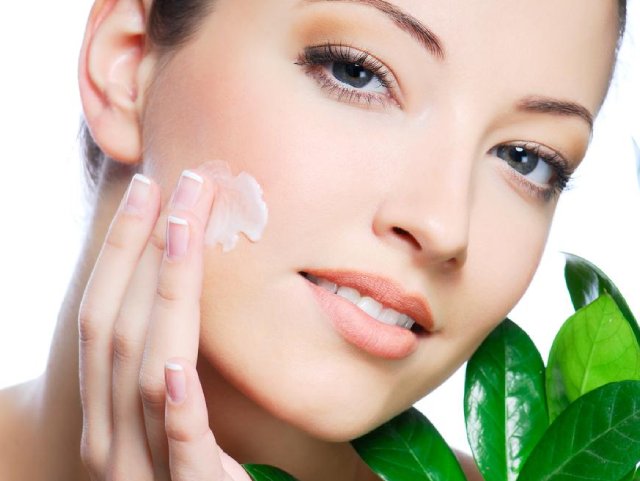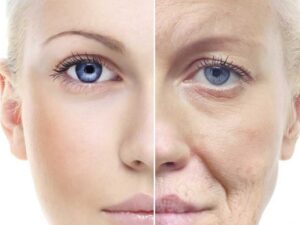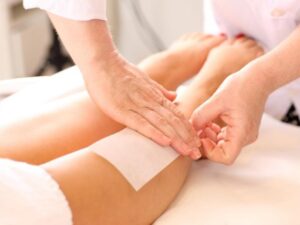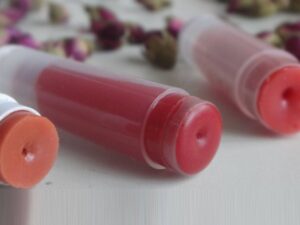Men and women with colored skin have distinctive skin characteristics and disorders which affect skin care. Indian and Mediterranean skin can vary from the alabaster to olive to cinnamon or the deep mahogany skin tones. Though opinions vary, as a brown skinned woman myself, I consider brown and olive complexions to be the most visually and aesthetically pleasing to the eye. This skin type is also the easiest to care for, ages late and ages well, carries all colors, and is not as vulnerable to skin cancers. Besides this, Indians and Arabs are known to love henna and perfumes, and use various herbs and botanicals to beautify their skin. Although most cosmetic industry giants spend millions of dollars in research, most of the studies done in this area, revolve around care for the lighter Caucasian skin. Many of these skin care products and even dermatological procedures (lasers, chemical peels etc), may be too harsh and detrimental on darker skin tones. If you are a brown skinned person, you must be aware of the special needs and peculiarities of your skin type, in order to care for your skin in the best manner.
What does ‘beautiful skin’ mean by scientific and aesthetic definition? Beautiful skin has an even tone, smooth texture, is clear, soft, supple, has no red or brown areas of discoloration, no open pores, and no greasy or flaky patches. Indian and Mediterranean skin may or may not burn in the sun, but tans uniformly and deeply. Our complexion has often been described as the ‘goddess’ or ‘sun-kissed’ skin type. Your skin can be classified as normal, dry, oily, combination or sensitive skin, pigmented or non-pigmented, and wrinkled or non-wrinkled skin. Each skin type requires a different skin care regimen and a different set of skin care products and cosmetics. If you are unsure about your skin type, I would suggest you to take Dr Leslie Baumann’s questionnaire at www.skintypesolutions.com/home.
Men and women with brown skin tone do not wrinkle early in life, but uneven skin tone and pigmentation problems are more common in brown skin than white skin. Pigmentation problems include brown blotches, sun spots and little brown moles and warty growths which appear in the early 30s, and increase with age. If you have spent several years in the sun (athletes and travelers), and if you are a smoker, your skin will age faster.
The principles of skin care are cleansing, toning, moisturizing, scrubbing or exfoliation, protection and nourishing.
Cleansers are needed to clean the skin and remove dirt, bacteria and dead cells. Cleansers can include soaps, detergent- or fat free cleansers, cleansers containing exfoliating beads, and acne-fighting cleansers which contain ingredients like salicylic acid or tea tree oil. Avoid using scrubs or loofahs, as they may irritate your skin.
Toners are astringents designed to remove soap residue and oils from the skin surface. Toners must be avoided by individuals with dry, sensitive or sun burned skin. Brown skinned people should avoid toners which contain irritants like witch hazel, alum or resorcinol.
Contrary to popular belief, moisturizers are essential for ALL skin types, and not just for people with dry or sensitive skin. Dry and dehydrated skin is more likely to burn in the sun and pigment. Choose products which are labeled as ‘dermatologically tested’, ‘hypoallergenic’ (less likely to irritate the skin), ‘non-comedogenic’ (less likely to create or aggravate acne), ‘fragrance-free’, ‘preservative-free’ and ‘alcohol free’ (for sensitive skin). Women with oily skin must look for water based or gel moisturizers, and prefer lotions over creams for their lighter texture. ‘Oil-control’ moisturizers contain oil absorbing substances like talc, silica, calamine, clay or starch, and are helpful in hydrating the skin without leaving it greasy. Women over the age of 35 can use anti-wrinkle moisturizers containing sunscreens, peptides, antioxidants, hyaluronic acid, Coenzyme Q10 and/or alpha-hydroxy acids, for added protection. Read the product/cosmetic labels to find these ingredients.
Exfoliants slough away dead skin and can help minimize acne, blackheads and open pores. These come as face washes, exfoliant masks and clothes/wipes. A home microdermabrasion kit is also apt for your skin polishing needs.
For protection, it is essential for all brown skinned men and women to use a sunscreen with SPF (Sun Protection Factor) of 30 or higher. It is a common misconception that sunscreen is only required if you have white skin, if you are an athlete, if you have a family history of skin cancer, or when you are living in a geographical zone which has a hole in the Ozone layer. It is now a scientifically established fact, that a sunscreen is required by ALL individuals, over the age of 2 years, irrespective of skin color, gender, lifestyle or geographical location. Your sunscreen is the best anti-ageing cream you can use. Most people hate using sunscreens because of its oily texture, and the whitish film left on the skin. It is true that the higher the SPF, the heavier or oilier the sunscreen tends to become. But these days, sunscreens are available are sports-sprays and liquids, which are becoming popular and well accepted by all.
For the nourishment and nutrition of your skin, drink 8-10 glasses of water everyday and have a diet which is rich in vitamins and antioxidants. For this, a simple tip is to add ‘color’ to your food, especially the green and yellow/orange fruits and vegetables.
Normal skin is the easiest to care for as it needs only a simple cleanser, toner and moisturizer. Oily and acne-prone skin is the most difficult skin type. It requires anti-acne cleansers, toners, exfoliants, face packs, non-comedogenic moisturizers and sunscreens. Dry skin requires mild cleansers, and rich creamy moisturizers. Combination skin requires astringent in the oily or shiny zones and moisturizers for the dry areas. If you have sensitive, pigmented, allergy-prone or reactive skin, you must consult a dermatologist for a skin examination, allergic patch testing and recommendations on skin care regime. A change in your hormonal status (puberty, pregnancy or menopause), and change in residence or climatic conditions may require a change in your skin care regimen. If you require any dermatological treatment for acne, pigmentation, scars, age-reversal or skin rejuvenation, please consult a dermatologist who is well-trained and experienced in the treatment of colored skin.
The recent trend towards skin lightening and bleaching creams is especially worrisome. Certain bleaching agents like hydroquinone, resorcinol, arbutin and phenols are too harsh on darker skin tones. It has been shown to cause side effects like skin allergies, paradoxical deepening of pigmentation, and even skin cancers. Some of these products are easily available over the counter (always check label for ingredients, and do not buy unlabelled products). Vitamin C, Kojic acid and Licorice-containing whitening creams are safer to use on brown skin. Nonetheless, learn to love your natural skin tone because brown is beautiful! So care for your skin, in order to keep away skin diseases, and maintain its youthful glowing appearance.




